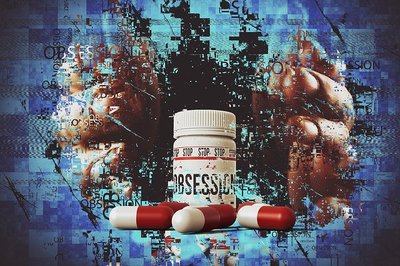
The Commonwealth Fund reports that 75 percent of all overdose deaths during the early days of the pandemic resulted from opioid abuse. Overall, all drug overdoses — and deaths related to them —have risen significantly in 2020, to a total of 88,295 predicted deaths. The Commonwealth Fund also reports that the final toll on overdoes remains unknown at this time due to the overwhelming increase in deaths.
The Role of the COVID-19 Pandemic
COVID-19 played a large part in these statistics. Studies show that the pandemic exacerbated the drug obsession that plagues America. The two crises joined forces to wreak even more havoc on individuals experiencing joblessness, isolation, depression, and other mental health conditions.
When faced with all of this heartache, it’s easy to understand why some people become trapped by addiction. Opioids offer an especially pleasurable way to escape the reality of traumatic experiences. But too many people pay the ultimate price for that choice.
Read on to learn more about opioids, the disease of addiction, and how Harris House can help.
The Background on Opioids
Doctors prescribe opioids to treat pain, which seems like a good thing on the surface. But there is much controversy on how (and how often) medical providers prescribe opioids. Well-meaning physicians often prescribed opioids for chronic pain, but because they are highly addictive, even the most compliant patients find it hard to stop taking them. When prescription refills are no longer available, many turn to illegal sources.
Prescription Opioids
Opioids that are often prescribed for moderate to severe pain include:
- oxycodone (OxyContin)
- hydrocodone (Vicodin)
- morphine
- methadone
- fentanyl
Fentanyl continues to be of particular concern in 2020-2021. Medically, fentanyl is used to treat agonizing pain, especially following surgery, or in advanced and terminal cancer patients. However, fentanyl is such a powerful drug (around 100 times stronger than morphine) that even very small amounts can cause death.
Heroin
Heroin is also an opioid drug that’s made from morphine. The Bayer Pharmaceutical Company made heroin commercially available in 1898. Despite the fact that it’s been illegal since 1924, in 2019, around 40 people in the United States died each day from a heroin overdose.
 A Relapsing Disease
A Relapsing Disease
Drug addiction is a chronic disease with a high rate of relapse. Addiction changes brain chemistry, making the temptation of drugs and alcohol hard to resist. Successful addiction requires treatment requires:
- constant management like any other chronic disease
- patience and knowledge to manage this disease
- resources to move forward into a productive, happy life.
How Harris House Can Help
Inpatient and outpatient drug rehab are effective ways for people struggling with alcohol and drugs to learn to manage their disease. Harris House specializes in drug and alcohol rehab programs focusing on the whole person that offer a way for people to break free of addiction to opioids or other drugs, including alcohol.
If you or a loved one is struggling with the debilitating effects of abuse, call us to learn about admissions.


 A Relapsing Disease
A Relapsing Disease





